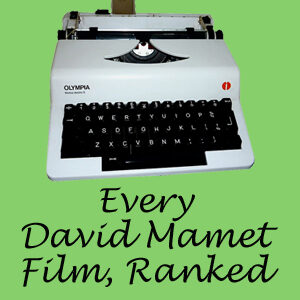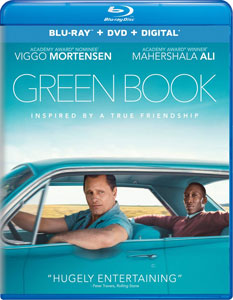Writer-director Peter Farrelly smooths out the excesses of his filmmaking traits for the surprisingly mainstream and easy-to-like “Green Book” (2018), now back in theaters and also available for home viewing. It’s not as funny as his best films like “Dumb and Dumber” and not as high-concept as the likes of “Stuck on You” and “Shallow Hal.” It’s possibly a crass grab at mainstream and critical acceptance, but it’s hard to quibble with the finished product.
The big heart found in most of Farrelly’s films – usually co-helmed with brother Bobby — remains in this sweet story of a friendship between two decidedly different New Yorkers in the 1960s, white driver Tony Vallelonga (Viggo Mortensen, plus 50 pounds) and black virtuoso pianist Dr. Donald Shirley (Mahershala Ali).
“Green Book” sometimes plays like a beginner’s guide to mid-century American racism, but it’s based on a true story and co-written by Tony’s son Nick, so it’s hard to argue with real life. The title comes from a traveler’s guide for black motorists listing what motels, restaurants, etc., are friendly to blacks. It’s the first of many details about life as a black person Tony doesn’t know about. While “Green Book” isn’t surprising in a broad sense – you’ll know how the story goes as soon as you hear the description – some details are eye-opening. For all the fawning white hosts give to Shirley at his concerts, he’s still not allowed to use the whites-only restroom or dine in the whites-only restaurant.
Scholars and critics have put “Green Book” in the White Savior trope category, and indeed, that’s the whole reason Shirley hires Tony to drive him through his concert tour that includes a substantial Southern swing. He needs the street-smart Tony to get him out of tough spots that will inevitably arise. Indeed, Shirley even packs makeup to cover the bruises he assumes he’ll receive.
What makes “Green Book” notable, though, is that it’s a portrayal of exactly what a friendship should be: two people who make each other all-around better people. If Tony is a White Savior, Shirley is a Magical Negro, walking Tony through his letters home to his wife, Dolores (Linda Cardellini). These aren’t tropes, but the film could also be seen as featuring a Black Savior and a Magical Italian-American. Tony and Shirley are so intertwined after two months on the road together that the tropes get intertwined, too. “Green Book” is a road-trip movie at heart, complete with all the crazy, scary and happy memories that pile up.
Additionally, Tony and Shirley transcend tropes by being so well-defined as individuals. Mortensen’s is the showier, movie-carrying performance; he’s a bit like Rocky Balboa except that his big heart takes longer to be exposed. In an early scene, Tony throws away two glasses after black workmen drink lemonade from them. It doesn’t fit with his behavior on the road with Shirley, so it’s interesting to try to figure out where that private display of racism came from.

Ali has the straight-man role as the cultured musician being flabbergasted – but in a prim and proper way – by the uncouth Tony. For a good chunk of “Green Book,” the formula repeats, with variations on the scene where Tony picks up a bucket of Kentucky Fried Chicken and forces a piece on Shirley. Tony teaches Shirley about his interests, and vice versa. Their interests don’t always fit with the stereotypes of their race, especially in the case of Shirley, who is hearing all the popular black musicians on the car radio for the first time. Once all the racism-victim experiences are stripped away, Shirley is still a lonely man, not feeling like he fits in with his own race.
“Green Book” isn’t the most daring or layered exploration of race and/or racism from a year loaded with such films, including the historically fascinating “BlacKkKlansman” and the imaginative “Black Panther.” It’s the safe movie among those options, and the first Farrelly film you can recommend to your parents. And it was a safe Best Picture winner at the Oscars — a film no one thinks is the very best movie of the year, but one that everyone likes well enough.

